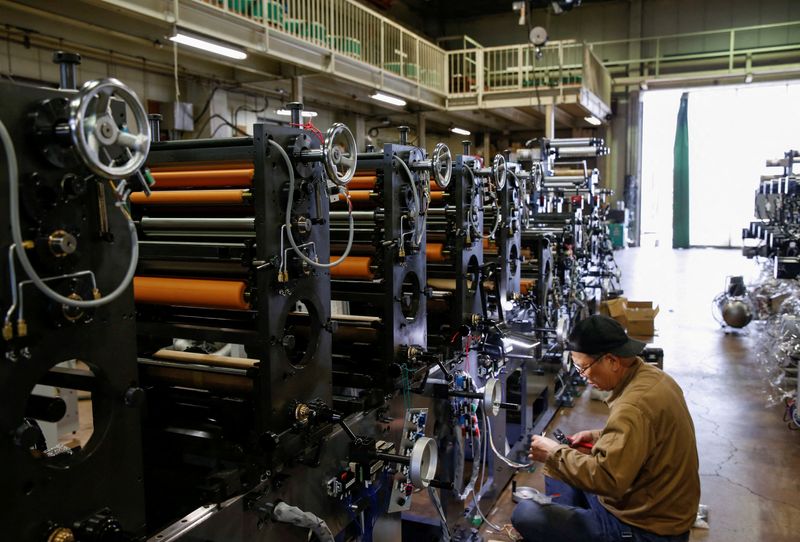By Tetsushi Kajimoto and Takahiko Wada
TOKYO (Reuters) - There is no pressing need for the Bank of Japan to alter its yield control settings as it has room left for manouevre before the 10-year bond yield hits its ceiling, a central bank board member said on Thursday, brushing aside market speculation.
Pursuing a reflationary strategy to boost growth and break free of decades of debilitating deflation, the BOJ operates a yield curve control (YCC) policy, with a -0.1% target for short-term interest rates and 0% for the 10-year bond yield.
In July, the central bank tweaked those settings by allowing the 10-year yield cap to move flexibly within upper/lower limits of 1%.
But, with inflation exceeding its target for more than a year, market speculation is rife that the BOJ could make further adjustments to its tolerance band.
Asahi Noguchi, a BOJ board member known for his reflationary stance, poured cold water over such speculation, in comments at a news conference in Niigata, north or Tokyo, where he had delivered a speech to business leaders.
"There's no need to rush into doing something as there's still room for a 1% cap (for the yield band)," Noguchi said, noting long-term interest rates were hovering around 0.8%.
The BOJ next meets for a policy meeting on Oct. 30-31, when it issues fresh quarterly growth and inflation projections. Noguchi expected upward revisions to the BOJ's price forecasts.
"Inflation remains higher than expected so price forecasts must be revised up substantially for the fiscal 2023," Noguchi added.
Policymakers must focus on improving wage growth to pave the way for sustainable inflation before tweaking easing policy, he said.
"We still need to guide policy with mainly downside risks in mind," Noguchi said, citing for example that Chinese economy may face the risks of deflation and low growth that Japan has suffered for decades.
"There's still a distance to achieve sustainable inflation," Noguchi said.
Japan's wage trends, which have been largely flat over the past three decades since the asset-bubble burst, are closely watched by global financial markets as the BOJ has emphasised that sustainable pay hikes is a prerequisite for dismantling its massive monetary stimulus.

Noguchi said household inflation expectations are steadily rising, but if wage growth lags behind price hikes, consumers would have no choice but to reduce their spending.
He said consumer inflation would slow towards the latter half of this fiscal year in line with the fading impact of high import bills.